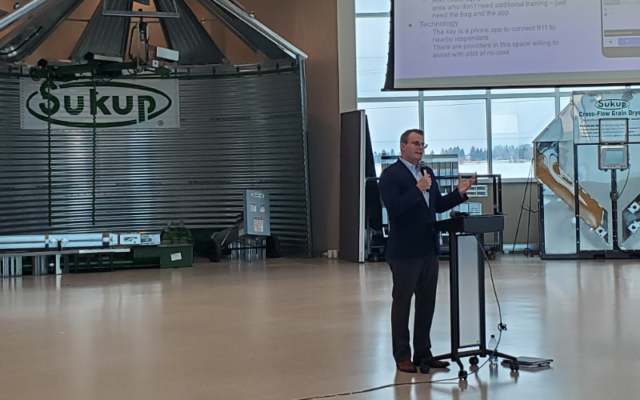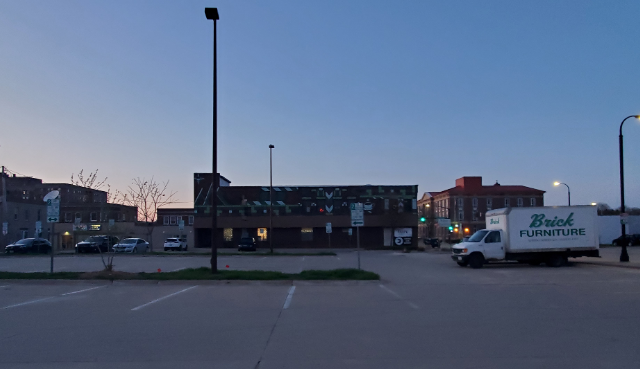Iowa Lt. Gov. Gregg pitches idea for helping improve rural medical emergency response

SHEFFIELD — Lt. Governor Adam Gregg was in Sheffield on Monday, speaking to a group of north-central Iowa community leaders, emergency management directors and medical responders about a state-sponsored pilot program to help address the state’s worsening problems with rural ambulance service.
He says, Well look, I think people in rural Iowa expect when they dial 9-1-1 that somebody is coming and quickly, and in too many places in our state, we are not meeting that expectation to the extent that we could or should. What we are talking about today is a pilot program where we’re trying to improve those services by using technology, by recruiting and encouraging new volunteers, and equipping them with the items that they need to be successful.”
Gregg says they want to crowdsource volunteers so they can immediately respond to a situation to stabilize a person until the traditional ambulance service arrives. Gregg says he got the idea during a recent trade mission to Jerusalem, where a similar program cut the medical response time down to around 90 seconds. “Basically they equip volunteers from all across the country to be notified if they are one of the five closest people to an emergency. Those people are willing to drop everything, grab their go back, grab their kit and get to that emergency as quick as they can and stabilize that individual until the traditional ambulance can come. We’re looking to adapt that model to rural Iowa by equipping our friends and neighbors and co-workers in using technology to notify them if they happen to be one of the closest in an emergency.
Gregg says sometimes the reception to the concept has been cool from community leaders, but he hopes to find two counties that will be part of the pilot project. “What I tend to see in these conversations is some questions, perhaps some skepticism, but ultimately as people come to understand the concept, maybe an interest in trying something new and a willingness to give it a shot. That’s all I can ask for, to have the conversation and see where it goes from there.”
Gregg says state leaders are interested in seeing if the concept works. “That’s the beauty of a pilot project. We can try something new with relatively low risk and measure the results, and if turns out that it works, you can have the justification to further expand it. If it turns out that it doesn’t work, it doesn’t change the dynamic, ok we are in no worse position from having tried it, and we will have perhaps dozens more people in these communities who have gotten some level of training and will know how to respond if they happen upon an emergency. It’s really a no-lose situation for us, but with really a lot to gain.”
Sukup Manufacturing hosted Monday’s event.




